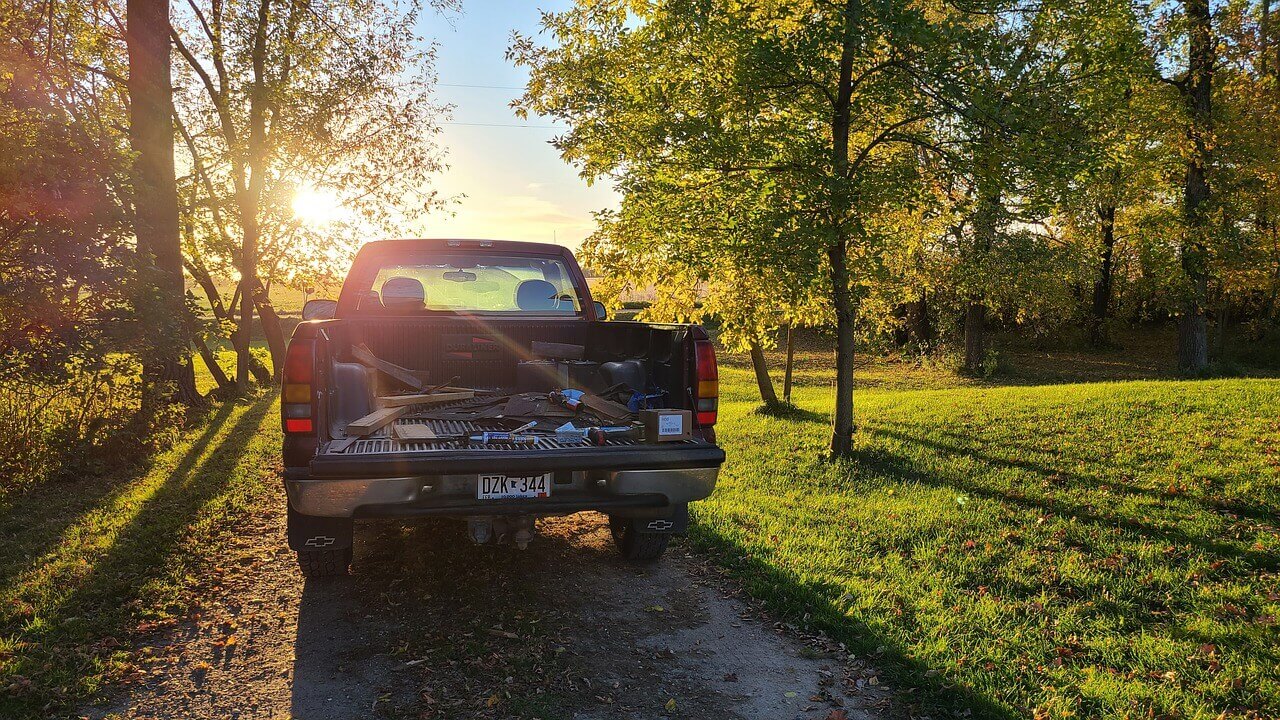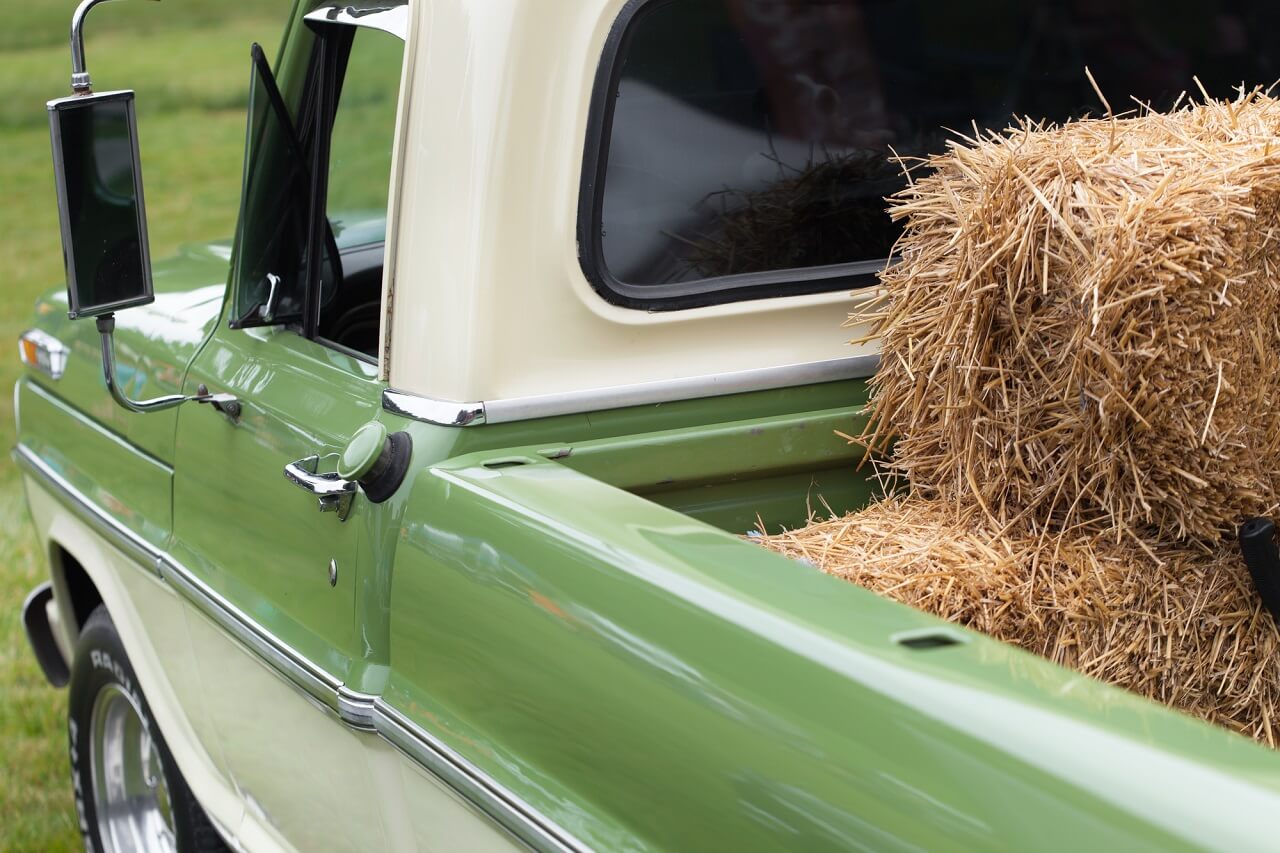Who can drive a farm truck and where they can drive it differs from State to State. It is necessary to check the individual legislation where you live. For the most part, anyone whose main job is running a farm or who lives on a farm and is related to the owner of the vehicle, or works for the owner of the farm vehicle can drive a farm truck. Read on to learn more.
What You'll Learn Today
What Age Can You Drive a Farm Vehicle?

Firstly, let’s talk about what is probably the most common variety of farm vehicle, the tractor. Sometimes it will be towing a trailer, and that does impact the answer to the question, what age can you drive a farm vehicle.
In most states, any driver from the age of 16 is permitted to drive a tractor on the roads. However, there are restrictions depending on the type and status of the license held.
If a provisional license is held, then a 16-year-old may only drive a tractor on the roads if traveling to or during a test. They may also drive the tractor on the return journey if they failed a test.
At 16, a driver who has passed the test may pull a two-wheeled trailer or a close-coupled 4-wheel trailer, so long as the overall width of the vehicle and trailer does not exceed 2.45 m. The vehicle must be licensed as an agricultural vehicle.
Any agricultural tractor may be driven by a 17-year-old on a provisional license, as long as it is not a tracked vehicle.
Can I Drive an Agricultural Vehicle on the Road?
Licensed agricultural vehicles can be driven on the road. There are, however, a few caveats.
Agricultural machinery is designed for working on the land and in the fields. Often it is a much slower vehicle such as a tractor and can take up more space on the roads than conventional vehicles. Some sensible rules that need to be adhered to can be double-checked here.
- Check that you have the accepted lighting and marking configurations. This is a confusing area and differs from State to State. The definitions of a slow-moving vehicle do vary.
- A Slow Moving Vehicle emblem (SMV) should be displayed on appropriate vehicles. While the regulations are not enforced uniformly across states, they should be displayed.
- A Speed Indicator Symbol (SIS) should also be displayed. While newer tractors can travel at a reasonable speed, they are still considered slow-moving vehicles. They should indicate what their maximum designed speed is on a sticker.
- Check your State’s laws to ensure it is permitted to use slow-moving vehicles on the road after dark. In some states, it is illegal.
- Ensure you follow the comprehensive list of safety measures that should be appreciated.
- Ultimately, please be a responsible and courteous road user, and be aware that you may well be delaying others in their journey. The general rule is to pull over somewhere where it is safe to do so if there are three vehicles behind you and allow them to pass.
- Agricultural vehicles may only be driven by their owner, who is a full-time farmer, other family members who live on the farm, and farm employees.
- The vehicle may only be used for farm-related jobs. Private use is limited to essential trips by the family, such as buying groceries or other essential supplies, taking children to school, visiting a medical facility, or going to church. Exact rules may vary by State.
How Far Can You Drive a Farm Use Vehicle?

You can drive your farm use vehicle up to 150 miles (and that’s road miles and not ‘as the crow flies). If you need to go beyond that distance, then you may require a ‘CDL,’ a Commercial Driver’s License. This may also be required if you need to cross state lines.
To check each State’s laws, visit https://www.dmvusa.com/.
Some of the issues that need consideration if driving any distance in your farm vehicle are covered here.
‘MAP-21’ (Moving Ahead for Progress in the 21st Century) came into law in 2012. It provides exemptions for vehicles classified as ‘CFV’ (covered farm vehicles).
Can Children Drive Farm Vehicles?
The short answer to this is yes, children can drive farm vehicles in most states. The proviso here is that the vehicle is on the farm and not on a public highway.
However, they should not necessarily be given free rein over all farm vehicles. There are some guidelines to consider before allowing your toddler to get behind the wheel of your brand new John Deere!
Agriculture, in the US, is one of the most dangerous industries, and before allowing ‘children’ to jump into the driver’s seat, the child must fully understand the complexities involved with driving a farm vehicle and show it the respect it demands.
Note that an average of 45 children are injured every day, and one dies approximately every three days from agricultural-related accidents in the United States. About 21.5% of these accidents are related directly to driving.
Before driving any vehicle or operating machinery, a child should be shown how to:
- Operate it properly
- Recognize potential problems and hazards
- Use personal protective equipment
- Act in case of an emergency
It is essential to explain fully and ensure that the instructions given are understood. Watch closely as the child practices and learns and that they can demonstrate a safe working knowledge of the vehicle.
In this video, you can see how to introduce your kids to driving tractors safely:
When it comes to driving on a public highway, the available information is quite conflicting. In some states, it is permitted for children to operate a farm-use vehicle, while certain criteria have to be met in others.
Third-party insurance is usually required for driving any vehicle on a public roadway, so this may prevent a child from taking the wheel as the insurance may very well give a minimum age limit for drivers.
How Old do you Have to be to Drive a Farm Truck on a Public Roadway?
Although it is legal to drive a farm-use registered truck on a public roadway without a license, there are laws covering from what age this is permitted in some but not all states.
Remember that most states demand that any motorized vehicle which uses a public highway be insured with a minimum of third-party insurance, and there are likely to be age restrictions attached to that insurance.
If an accident were to happen with a child who was without insurance and below the age of 18 years, then the parent or legal guardian would be responsible for any liability claims made against them.
Can You Drive a Farm Truck Without a License?
Bizarrely, so long as the licensed ‘farm truck’ is below 26,000 lbs and is staying within the 150-mile radius in which a farm truck is legally permitted to operate, then you do not need a license to drive one.
The same 150 – mile radius distance from the farm applies to all kinds of different farm vehicles.
Exact rules and regulations may differ from State to State. Stay up to date with your state regulations and those of others that you may need to be driving through.
Conclusion
Although the law does differ by State regarding who can legally drive on a public highway, both unlicensed drivers and children can get behind the wheel of a farm vehicle provided the vehicle stays on the owner’s farm property.
It is good to remember, however, that should an accident occur involving a third party, for example, someone visiting the farm whose property is damaged. Then liability would fall on the shoulders of the owner of the vehicle that did the damage.
Needless to say, this could be costly!
Another good thing to remember is the statistics for child-related injuries and deaths on farms, many of which are directly caused by driving incidents.
Please note that this article was created purely as an overview and in no way meant to reflect the full legal legislation on the topic of who can drive a farm truck. Complete information should be sought from appropriate official bodies.
To read more farm truck-related articles and much, much more, take a closer look at our website – here is our guide on how to keep mice out of your truck.